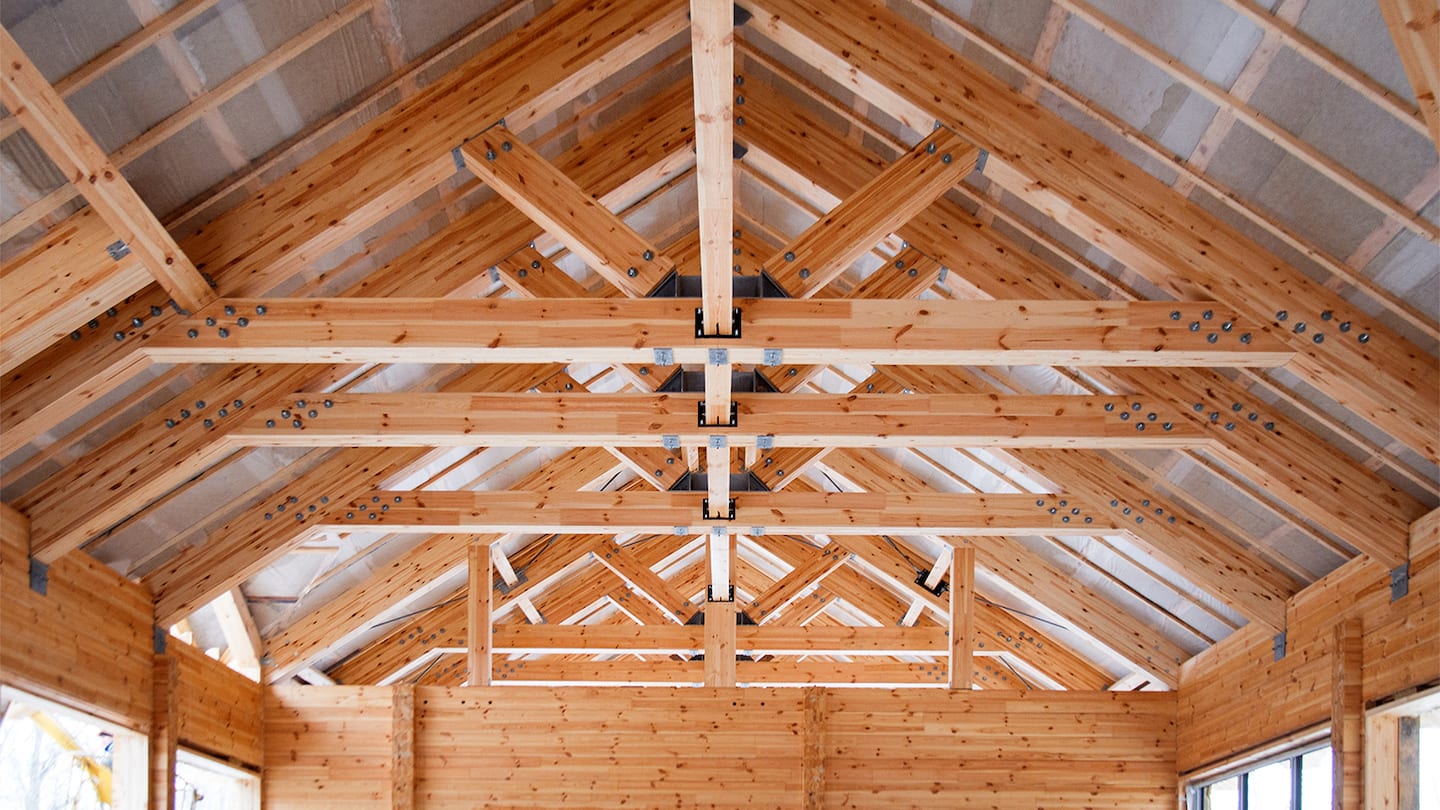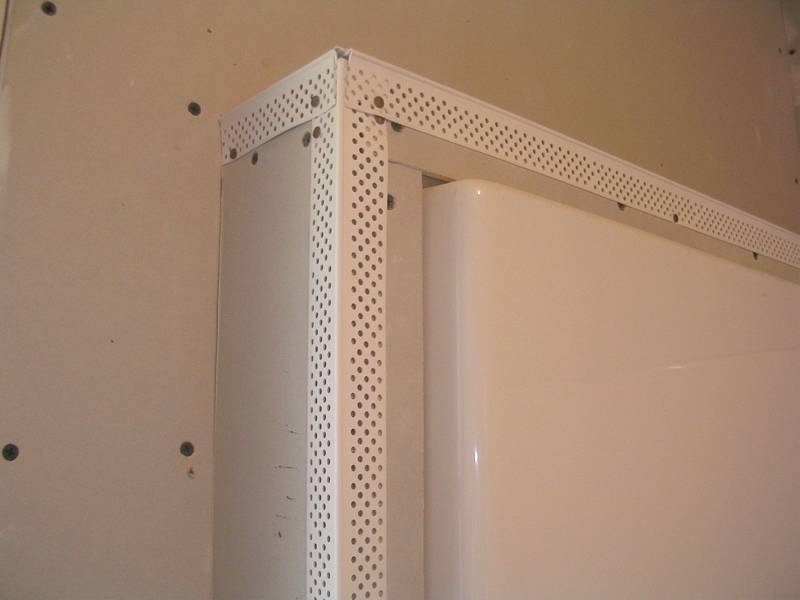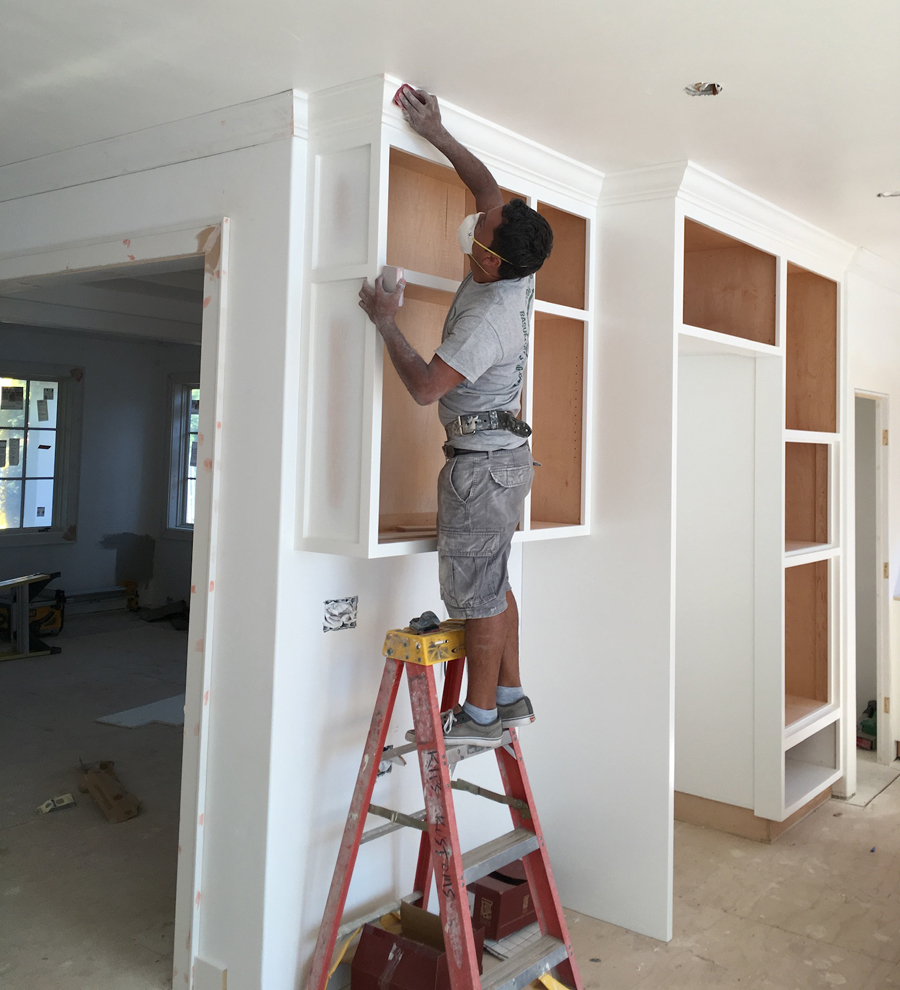
The drywall sanding net is a type sanding tool used to repair sheetrock and plaster. It has holes that allow drywall dust to fall away. It can also be used for wall preparation.
The drywall sanding wire is made from abrasive bonded with a mesh. It is often sold as single, 115mm wide, x 5m rolls or as part a kit of 100 sheets. These are available at a number of shops. You can buy them at some hardware stores. Paint and drywall outlets may also sell them.
A sanding pole, hand sander, as well as protective gear are required to use the sanding net. Your work area should be well ventilated. A respirator or mask is recommended. You should also keep a hat on hand to prevent drywall dust entering your eyes.

You will need to seal any air ducts and doorways you don't want to sand. This will help reduce the dust in the air. Large plastic dropcloths are also recommended. If your sanding will occur in an area that is not well ventilated, you will need to open windows or doorways to let in fresh air.
After your walls have been sanded, you can check them with a flashlight. You can continue the process if the results are not satisfactory. You should remember that you can scratch the walls if you sand too hard. It is best to start by lightly sanding the wall and then add a second coat with mud. You can now finish the finesse work yourself.
Alternatively, you can buy a sanding screen that will fit on your sanding pole. This is a very popular tool for drywall finishers. This method is not suitable for larger projects.
Sanding screens come with two options: sandingpaper and sanding net. Sanding mesh is preferred for drywall sanding. Sanding papers are more suitable for wood sanding or plasterboard finishing.

Drywall sanding mesh is not only effective, but it is also very inexpensive. It is resistant to clogging unlike sand paper. It can be washed repeatedly and is water resistant. The mesh should be chosen for the project you have in mind when shopping for sanding material.
It's common for drywall to accumulate dust during the first stages. This can be avoided by using a vacuum cleaner or sweeping the sanding compounds. In areas where ventilation is poor, you should wear glasses and a head-covering.
Make sure you check your sanding screens on a regular basis for damage. This will ensure a smooth finish. If in doubt about the condition of the screen, remove it prior to sanding. Doing this will prolong the life of your sanding screen.
FAQ
Are there permits needed to renovate my house
Yes, you will need permits before starting any home improvement project. In most cases, you will need both a plumbing and building permit. A zoning permit may be required depending on what type of construction you are doing.
How to sell my house fast without having to pay realtor fees?
Start searching for buyers immediately if you're looking to sell your house fast. You should be open to accepting any price offered by the buyer. Waiting too long can lead to losing out on buyers.
How Much Does it Cost to Renovate a House?
The type of material, the project size and the complexity of renovations will all impact the cost. Some materials such as wood require additional tools like saws and drills while others like steel do not. The cost of renovations will vary depending on whether your contractor does all the work or you do it yourself.
Home improvement projects cost on average $1,000 to $10,000. The average cost of home improvement projects would be between $5,000 and $25,000. If you hire professionals, the cost would be between $5,000 and $25,000. However, if the task is done entirely by yourself, the cost could rise to as high as $100,000.
You should know that there are many factors which determine the final cost of renovation. The cost of renovation depends on the material used (e.g. brick vs concrete), the size of the project, the number of workers involved, the length of the project, etc. When estimating the total cost for renovation, it is important to keep these factors in your mind.
What should I do first when renovating my house?
Fixing up a home starts with cleaning out all the clutter from inside and outside. Next, remove moldy spots, replace damaged walls, fix leaky pipes, and paint the whole interior. You will need to clean up the exterior and paint.
How long does it usually take to renovate your home?
It depends on the size of the project and the amount of time that you spend each day. On average, homeowners spend between three and six hours per week working on their project.
Statistics
- According to the National Association of the Remodeling Industry's 2019 remodeling impact report , realtors estimate that homeowners can recover 59% of the cost of a complete kitchen renovation if they sell their home. (bhg.com)
- On jumbo loans of more than $636,150, you'll be able to borrow up to 80% of the home's completed value. (kiplinger.com)
- Design-builders may ask for a down payment of up to 25% or 33% of the job cost, says the NARI. (kiplinger.com)
- It is advisable, however, to have a contingency of 10–20 per cent to allow for the unexpected expenses that can arise when renovating older homes. (realhomes.com)
- The average fixed rate for a home-equity loan was recently 5.27%, and the average variable rate for a HELOC was 5.49%, according to Bankrate.com. (kiplinger.com)
External Links
How To
5 Things You MUST Know Before Starting Your Home Renovation
-
Do you really want this? If you're planning on embarking on major home improvement projects like renovating your kitchen, bathroom, or building a brand new house, it's certain that you'll need to have some assistance. If you aren't confident enough to take on such a daunting task, you may want to reconsider. This could cost you a lot of money and time, and you may not get any real benefit from it. Instead, why not hire someone who knows what they're doing to help out? They'll save you a lot of hassle and stress, and you'll still end up with a beautiful space to live in.
-
How much should I spend? This may seem obvious but it could make things worse if you spend too much on your renovation project. Because you will likely end up paying most of the costs back at the conclusion of the day. Stick to your budget if you have one! Otherwise, you could end up paying a fortune without getting anything in return.
-
Do I hire professionals or do I need to DIY? - There's no right or wrong answer here, but we'd recommend hiring professional tradespeople if you can afford them. They can give you sound advice about how to proceed with your project. For example, they'll be able install the plumbing correctly, ensure that everything is done safely, and provide you with a warranty when they finish their work. On the flip side, DIY projects usually involve lots of trial and error, which means you'll have to learn a lot of lessons the hard way. You will also need to deal with the many issues that arise during the process.
-
Can I afford it - Don't underestimate what a renovation will cost. Even if your budget is tight, you may need to borrow money to cover costs. It is also important to consider the selling price of your current property when you plan on selling it soon after you have completed the renovations.
-
How do I begin? There are no right or wrong places to begin when choosing where to start. But we suggest you choose something that you enjoy working on. If you enjoy what you do, you will be more motivated to continue working and less likely procrastinate. Avoid places that need a lot of attention. You should avoid redecorating your living room if it is always covered in dirt and dust.